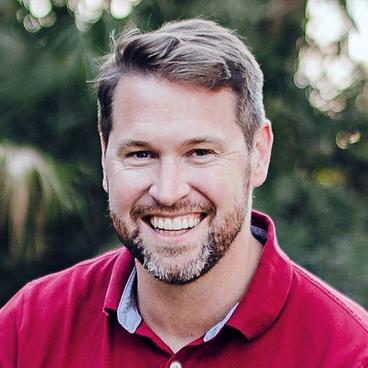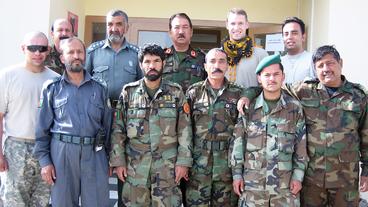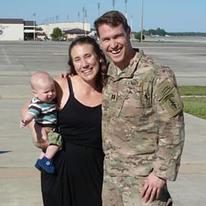
For Andrew Jaunich, his journey to becoming a student at the Humphrey School of Public Affairs has been marked by a dedication to service, resilience, and a strong commitment to creating positive change.
It's been just over 20 years since Jaunich, then a high school senior, made a significant decision—to enlist in the U.S. Army.
A self-described "military brat," Jaunich was inspired by his father's service in the Navy and felt an inherent calling to serve his country.
Now, after finishing a complex military career, starting a family, and working in the private sector, Jaunich is finally fulfilling a personal goal by earning his master's degree.
Military career
Jaunich's military journey was far from straightforward. Following basic training, he went to California for language studies in Persian-Farsi. Later, he attended Florida State University and enrolled in the ROTC program to become an officer.
The transition from barracks life to a college campus was jarring, especially as his friends began combat deployments while he pursued his studies.

"I remember being in the [dining facility] eating when we got word that we were invading Iraq," Jaunich says. "Our platoon sergeant said, 'Mark my words, all of you are going to be deployed—every single one of you.'"
In fact, Jaunich faced multiple deployments, including one to South Korea and three challenging tours in Afghanistan.
He served as an infantry officer and a military intelligence officer alongside infantry and special operations. He also went through Ranger and Airborne training, which are highly specialized courses for those facing combat.
Recalling his last deployment to Afghanistan, Jaunich remembers a particularly difficult experience.
"We lost a couple of [soldiers] under my command. And then my first son was born," he says. "I deployed in October of 2013, and my son was born in November, so I was in Afghanistan for a month and then I came home for two and a half weeks. And then went back to Afghanistan for five more months."
Transition from military life to corporate career
Despite steadily climbing the military ranks and becoming a senior intelligence officer for a special forces battalion, the urge to spend more time at home with his family led Andrew to leave the military in 2015 and begin working at Medtronic, a global medical device company based in Minneapolis.

"I spent a lot of time in the public sector, and I wondered if I had what it takes to cut it in the private sector," he says.
His role as a senior quality systems manager at Medtronic involved ensuring the consistency and quality of medical devices and collaborating with government agencies on policy applications and regulations.
After nine years, Jaunich says he felt it was time to return to college after putting it off at various times of his life—and it was time for a new challenge. So he enrolled in the Humphrey School’s Master of Public Policy program and began his studies this fall.
"I want to be more engaged in the idea of what is good policy and policy application," Jaunich says. "There's been a lot of bad policy. And how you view it and how it's viewed by the public. I want to get more engaged in that."
Transition to graduate school
Jaunich now finds himself adapting to this new phase in his life and career.
"The Humphrey School is world renowned, as is the [public policy] program," he says. "And I’m a big public school advocate, where you bring everybody together with different backgrounds and views to drive towards some kind of consistent application."
As a bonus, Jaunich’s dad had been a big fan of the School’s namesake, former vice president and senator Hubert Humphrey.
“Humphrey had a cabin on Waverly Lake, which is about where my dad grew up. It was very common for my dad to see Hubert Humphrey.”
So far, Jaunich says his first year at the School has reaffirmed his decision to pursue his master’s degree.
“I have really enjoyed the analytics classes. One of the reasons I wanted to get a public policy degree was…you want to see a policy that's been tested and tried and really massaged before you try to put it in place. Then you know it's going to be successful, and so getting the tools and being able to practice has been great.”
He also likes his cross-sector interaction course, which covers how to address big problems through collaboration among various parties.
“You have public sector resources, private sector, and technical ability from nonprofits, so combining those to drive big results has been really interesting with students from business, law, and public policy,” Jaunich says.
As he thinks about the next pivotal stage of his career, Jaunich looks forward to supporting the Twin Cities community post-graduation.
"My interest is becoming more and more local," he says. "I would really like to start to get more engaged at the state, county, or city level…to be more impactful, where I can see and adjust what I am trying to do."
Learn more about the Master of Public Policy program as well as all of the Humphrey School’s master's degree programs.

